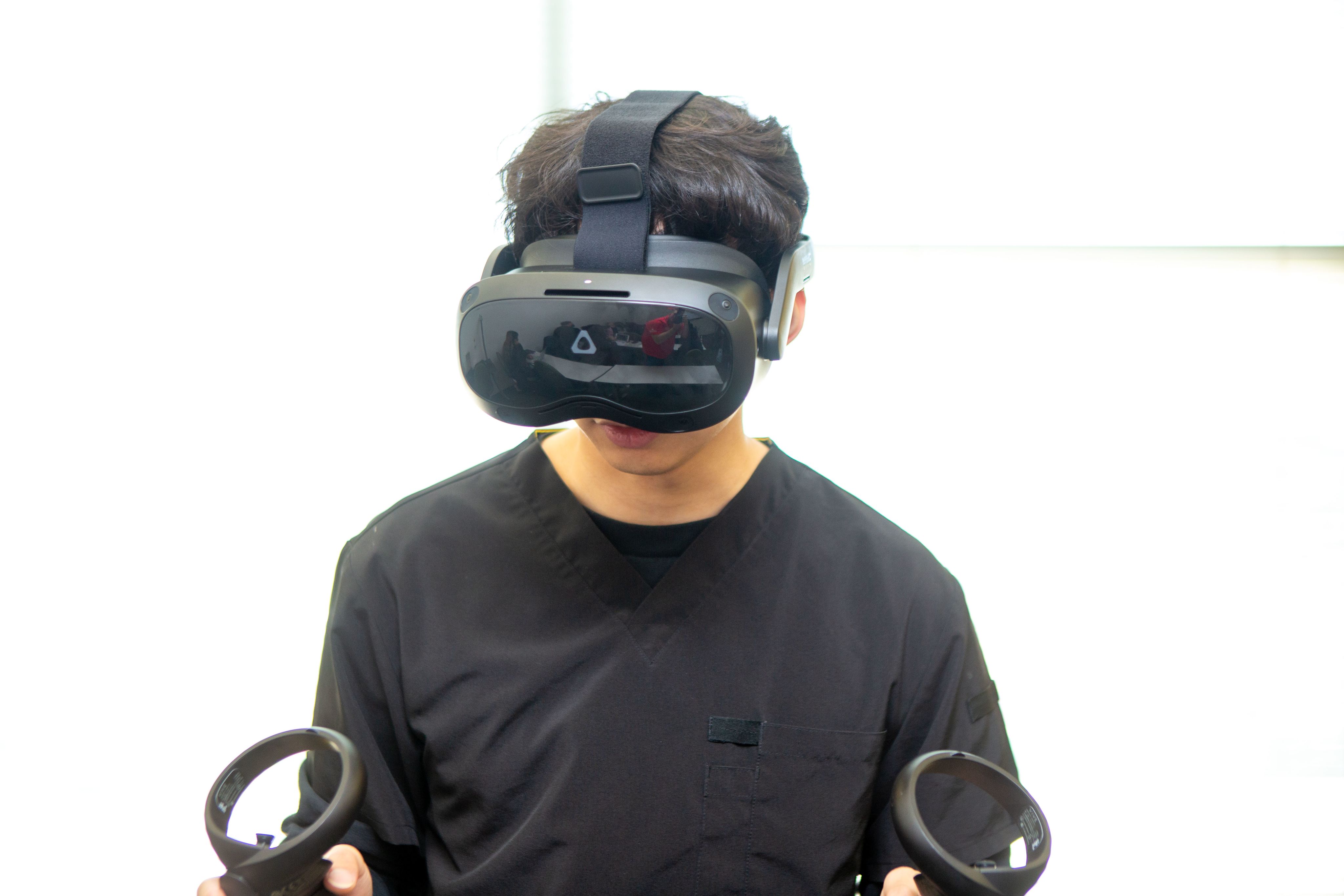UH’s Andy and Barbara Gessner College of Nursing Earns National Accreditation for Health Care Simulation
College’s Research and Course Offerings Support Accreditation

The University of Houston Andy and Barbara Gessner College of Nursing has earned prestigious national accreditation from the Society of Simulation in Healthcare. The College is the first and only college in the greater-Houston area to achieve this accreditation.
The Methodist Sugar Land Hospital Nursing Simulation Center at UH at Sugar Land and the HCA Houston HealthCare Nursing Simulation Center at UH at Katy feature state-of-the-art mannequins and tools for multi-disciplinary, hospital-based training in a realistic environment. Through this dynamic learning, students practice, observe and are evaluated in various environments such as maternity, hospice, emergency room and bedside care.
Simulation in Practice
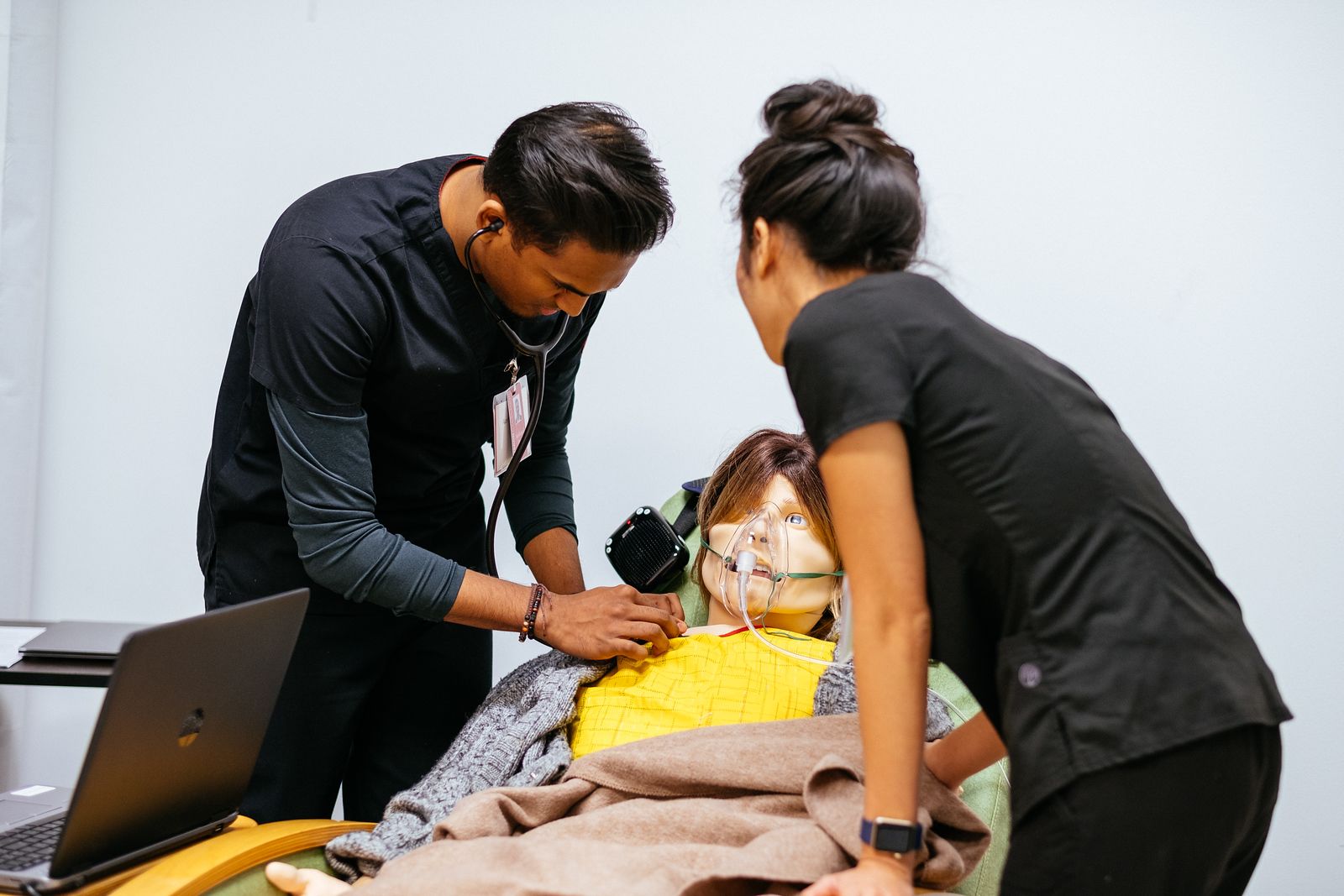
In a recent perioperative nursing course at Gessner College, it was easy to see how the college earned its accreditation. The course focused on simulations, and students, using virtual reality, put themselves into a virtual operating room. Once inside, the students perform the tasks of an operating room nurse, maintaining sterility, assisting surgeons, handing them instruments and anticipating surgical needs. The simulations use a gaming feature where the students earn points to help them become familiar and better with the requirements of the surgical nurse. The students also see the inside of the human body where the surgery is taking place.
Perioperative nurses, sometimes called surgical or operating room nurses, oversee the care of patients before, during and after surgery. The course, in its 10th year as a “mini-mester,” is a two-week elective that mixes a week of classroom/sim lab learning and a week of learning in an operating room.
“The SSH accreditation underscores the importance of simulation labs in health care education,” said Kathryn Tart, professor and founding dean of the Gessner College of Nursing. “As we focus on clinical excellence, sim labs provide safe environments for our students to hone their skills. We are grateful for our health care partners who have invested in our college and in the future of nursing. Their support has positioned us to achieve this accreditation.”

Students at the Andy & Barbara Gessner College of Nursing train in simulation labs that provide hands-on clinical simulation training in a realistic environment to improve patient safety and patient care.
Students at the Andy & Barbara Gessner College of Nursing train in simulation labs that provide hands-on clinical simulation training in a realistic environment to improve patient safety and patient care.
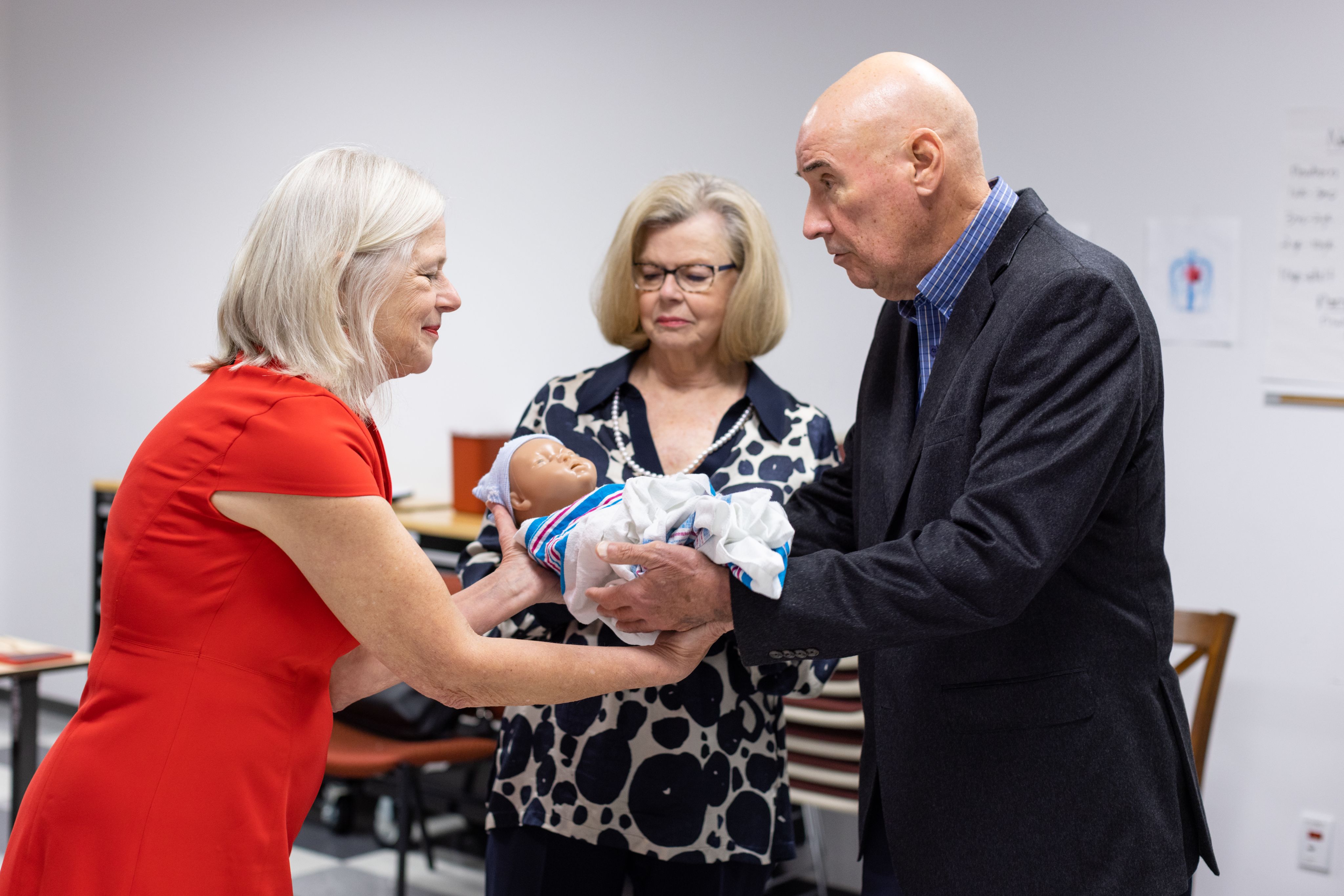
At left, Kathryn Tart, founding dean of the Gessner College of Nursing, visits with Andy and Barbara Gessner in the college's simulation center.
At left, Kathryn Tart, founding dean of the Gessner College of Nursing, visits with Andy and Barbara Gessner in the college's simulation center.
The Marriage of Perioperative Nursing and a Simulation Lab

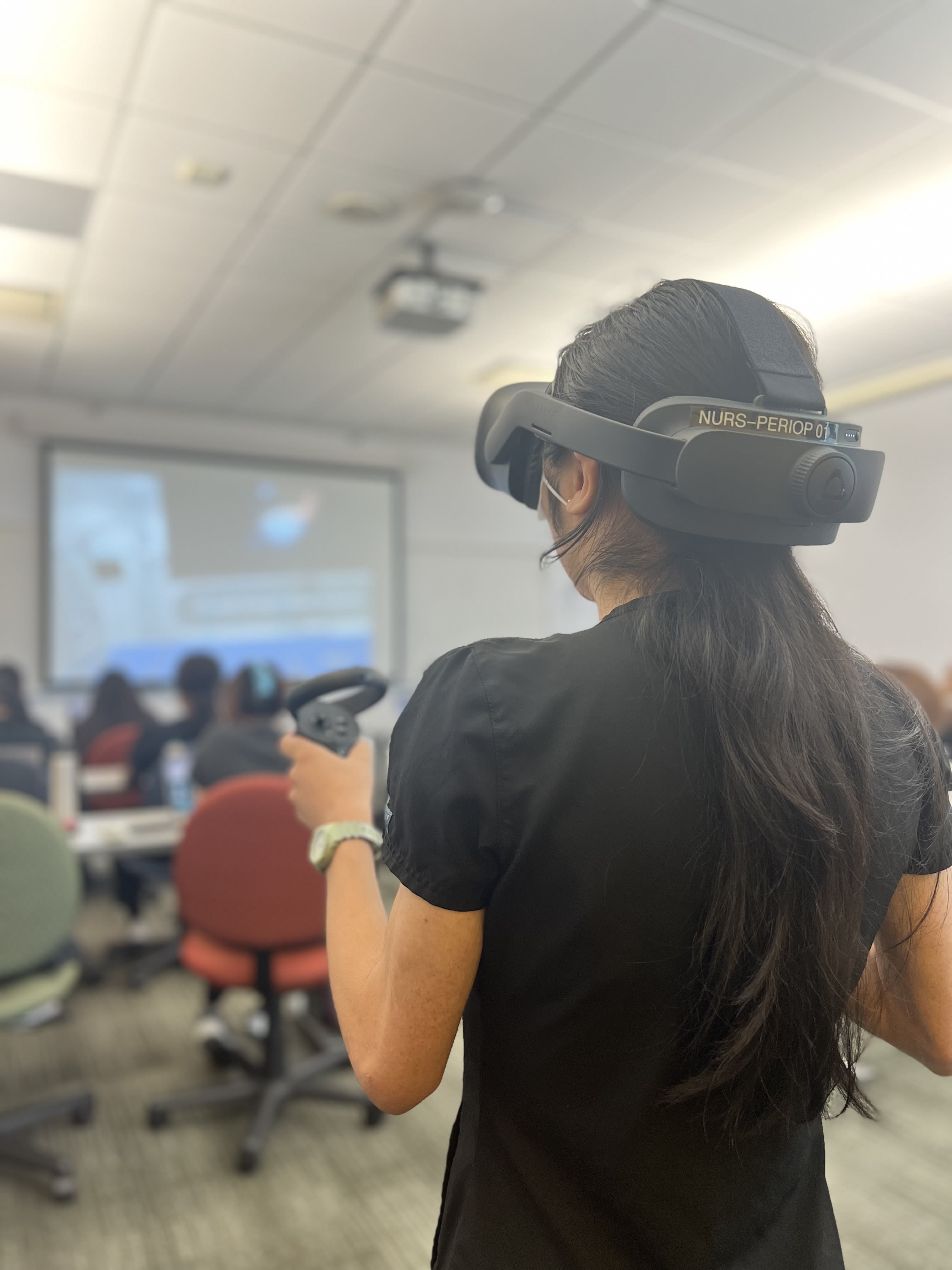
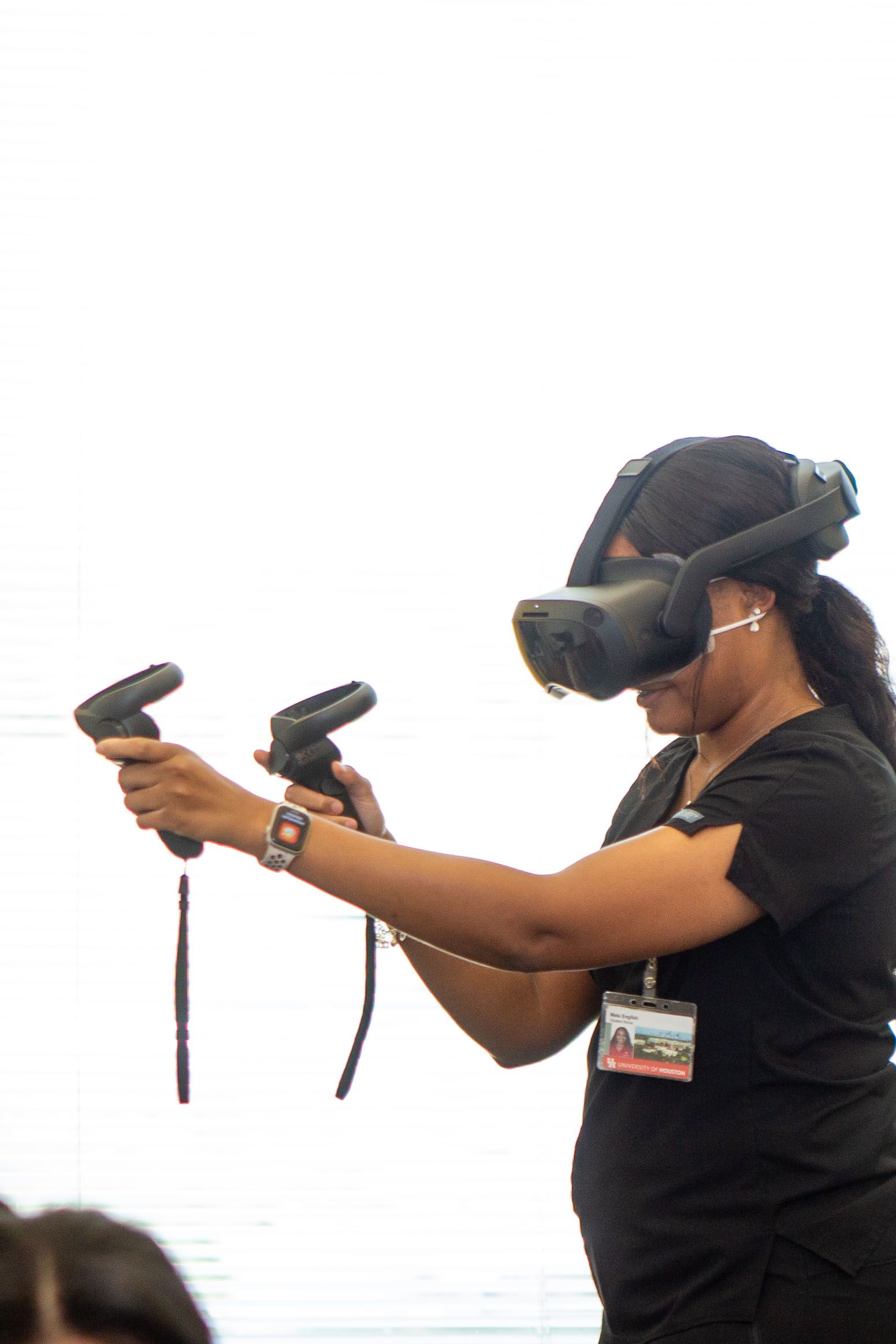
Assistant professor of nursing at Gessner College, Danielle Quintana, herself a certified perioperative nurse, helped Dean Tart create the class. Not many nursing colleges have a focus on or program for perioperative nursing care.
Quintana’s latest research suggests that because of severe perioperative nursing shortages coupled with a lack of clinical sites (hospitals/health care facilities that open their doors to nursing students to learn), these kinds of classes present a win-win situation: training needed specialty nurses and securing new clinical sites for nursing students.
“An opportunity exists for faculty, regardless of having perioperative nursing experience or not, to use perioperative environments for clinical experiences in didactic and simulation courses,” said Quintana. “The simulation lab is an ideal place to provide students with learning opportunities to apply what they know by safely demonstrating skill acquisition.”
To secure accreditation, health care entities are evaluated on mission and governance, program management, resource management, human resources, program improvement, ethics and expanding the field. Additionally, programs are evaluated on their assessment, research and teaching/education standards. Completing the evaluation process, which includes a scheduled visit by reviewers, spans the better part of a year. Accreditation is granted for a five-year period.
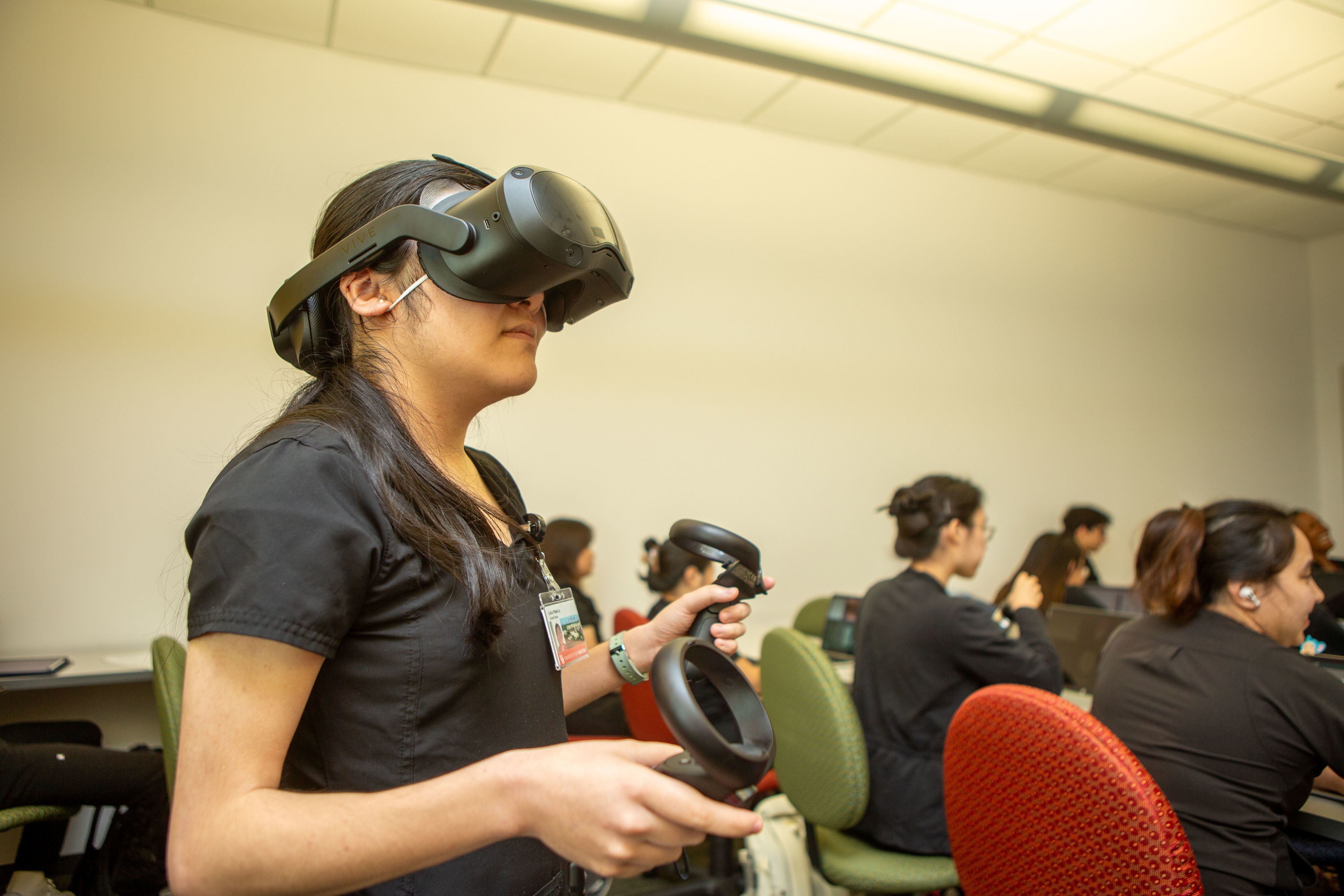
Classmates observe nursing student Lotus Pham work in a virtual environment on the screen. Here, she is about to begin passing instruments on an abdominal surgical procedure.
Classmates observe nursing student Lotus Pham work in a virtual environment on the screen. Here, she is about to begin passing instruments on an abdominal surgical procedure.
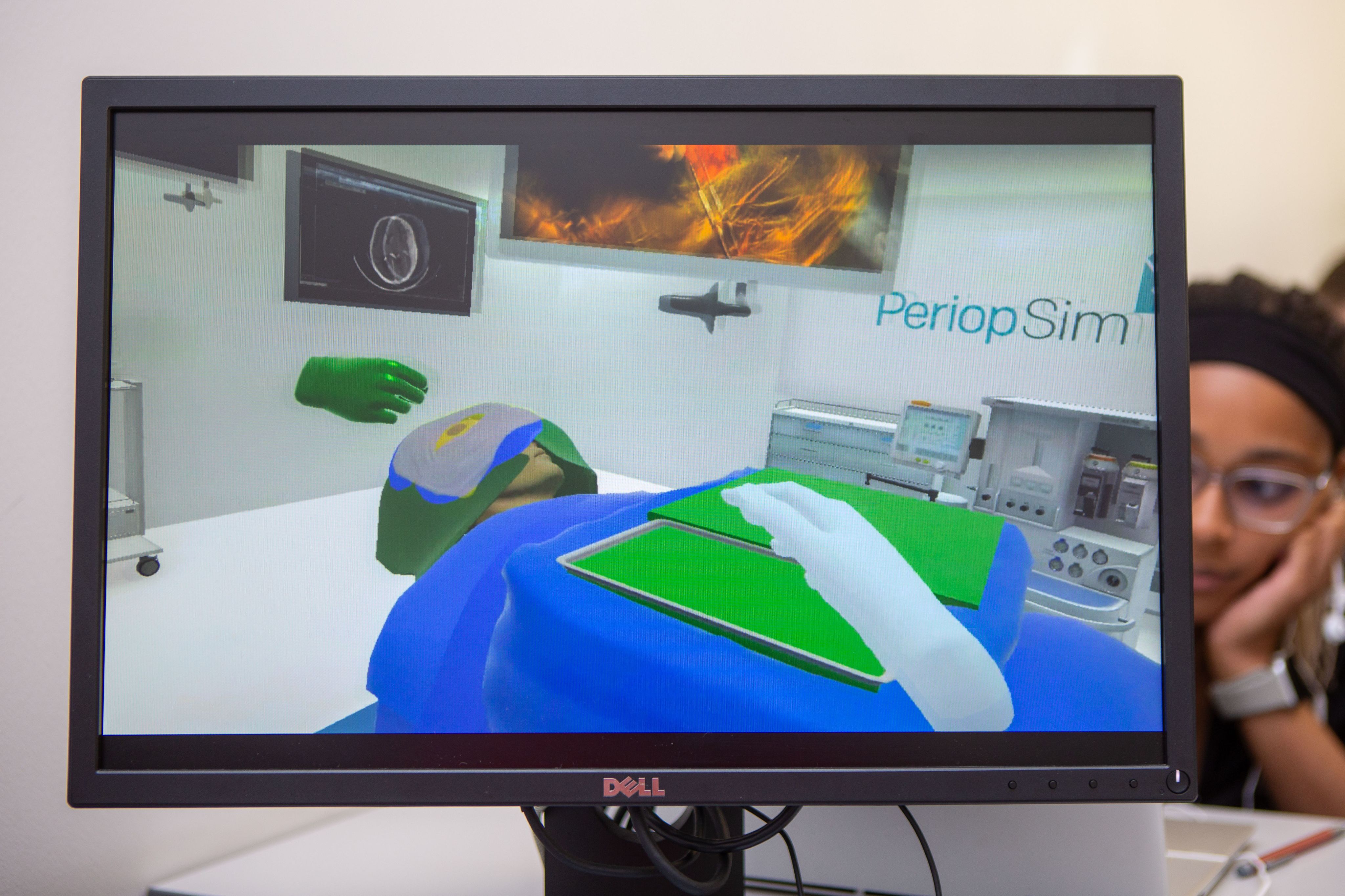
Classmates observe nursing student Lotus Pham work in a virtual environment on the screen. Here, she is about to begin passing instruments on an abdominal surgical procedure.
Classmates observe nursing student Lotus Pham work in a virtual environment on the screen. Here, she is about to begin passing instruments on an abdominal surgical procedure.
